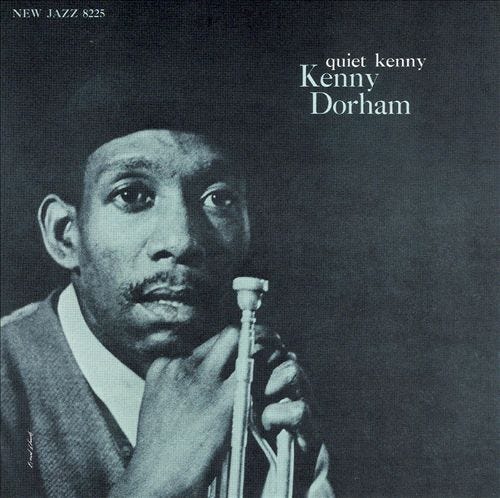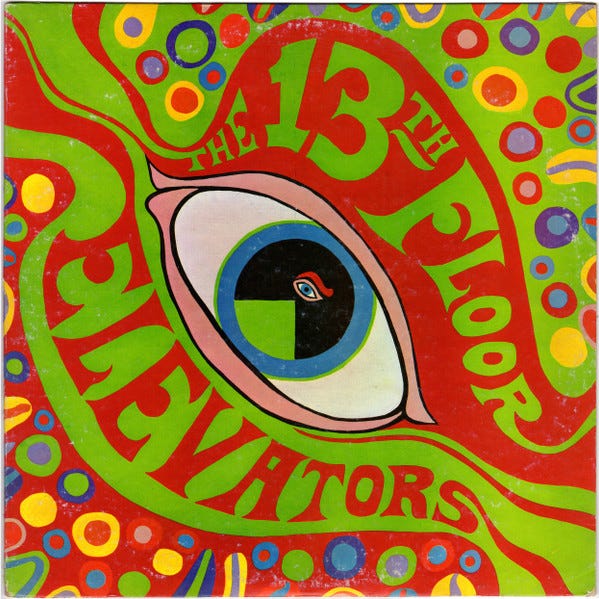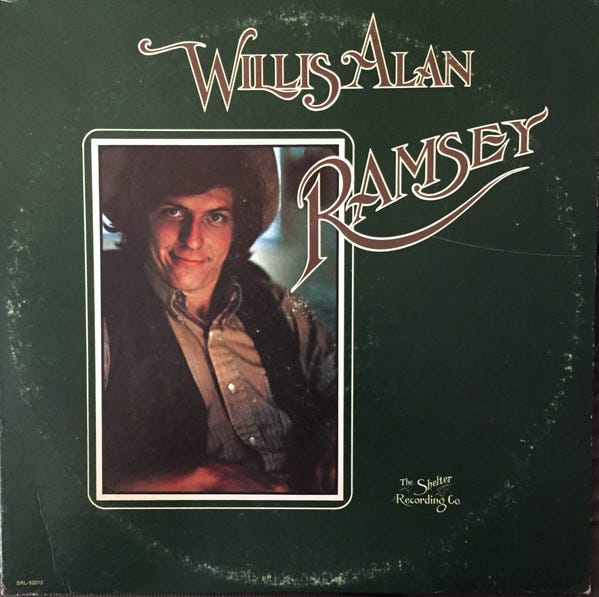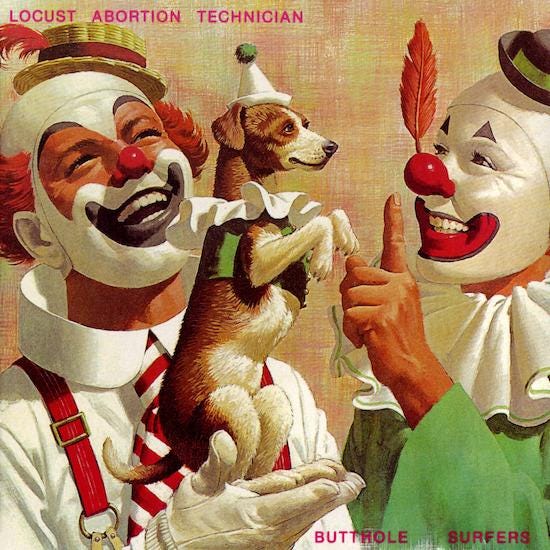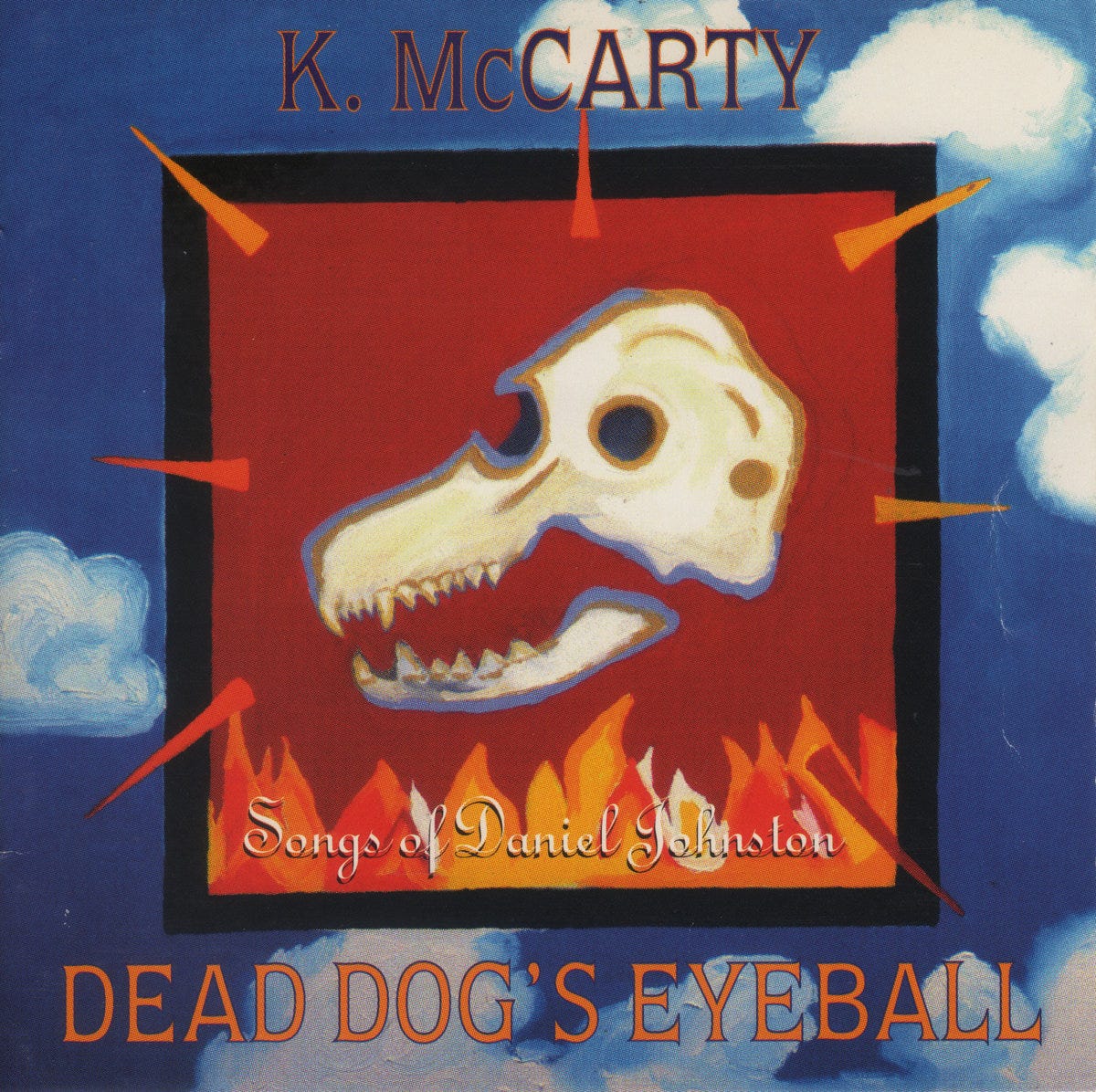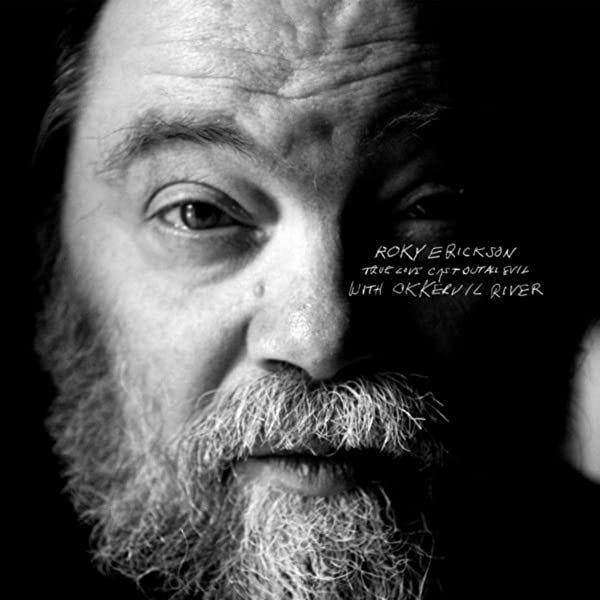Austin LPs of the Decades: 1950s to 2010s
That's right! Willis Alan Ramsey over Red-Headed Stranger and Viva Terlingua
1950’s
Quiet Kenny by Kenny Dorham (New Jazz)
This 1941 graduate of L.C. Anderson High in East Austin spent his career in the shadows of Miles and Dizzy, but even though he blew under the radar he’s known today as the thinking man’s jazz trumpeter, with immaculate tone and soulful articulation. This 1959 LP, which kicks off with his great original “Lotus Blossom,” showcases his cool, understated, but certainly not complacent, style. Though Dorham was not part of the Austin jazz scene after graduation, he had a great time returning for the 1966 Longhorn Jazz Festival at Disch Field, where he reminisced with fellow Yellowjacket Band trumpeter Alvin Patterson. Dorham passed away in 1972 at age 48 from kidney disease.
1960s
Psychedelic Sounds of the 13th Floor Elevators (International Artists)
The first album to use “psychedelic” in its title was recorded when LSD was still legal (not that it mattered to these guys.) Elevator afficianados generally prefer the sophomore stretch, 1967’s Easter Everywhere, which sounds better than this rush-job, recorded in three days in Dallas. Producer Lelan Rogers is way too in love with the jug, which set the band apart yet sometimes stepped all over the vocals and Stacy Sutherland’s guitar lines. But Psychedelic Sounds had the element of surprise- and “You’re Gonna Miss Me,” the ultimate anthem of the Austin music scene.
1970s
Willis Alan Ramsey (Shelter)
Everybody kept telling me this was a great album, to the point that listening to it felt like doing homework. “Muskrat Love”? That’s great? I’d look at the titles- “Satin Sheets,” “Angel Eyes,” “Northeast Texas Women”- and put the album down. It had been out for 12 years, so I knew I wasn’t going to write about it.
A few days ago I was researching the 1970 “Rock Festival” at Clark Field (Red River and 26th Streets), put on by a UT students entertainment committee. Austin’s first big outdoor rock concert featured the Allman Brothers, Leon Russell, It’s a Beautiful Day and more. It reminded me of the story of Willis Alan Ramsey getting his record deal. This 19-year-old kid from Highland Park in Dallas goes knocking on doors at the Villa Capri until he’s in Leon Russell’s room with his guitar. Leon says you got five minutes, kid, but Ramsey keeps singing for half a hour, not a clunker in the bunch. Then he sings for Gregg Allman. They both want to work with this fresh-faced genius. Leon ends up signing him to Shelter, then spends a quarter million dollars making the debut.
I wanted to get an idea of what Leon heard at the Villa Capri, so I played the Willis Alan Ramsey album for the very first time. At age 66, I swear. It’s a FUCKING masterpiece! Not for the songs, necessarily, but the groove, the vocals, the whole sound. I wasn’t prepared for how close it gets to Little Feat. For years I’ve read critics ponder why Ramsey never released a followup, but I figured it out on one listen. You make a record this great and you don’t even get a gold record, why bother?
This great 1972 album turns 50 years old this year. Give it a tug if you haven’t already.
1980s
There were cooler music cities than Austin in the ‘80s. Athens, GA had R.E.M. and B-52s- we had Zeitgeist and Dino Lee. But we were the home of the Butthole Surfers and no one could touch us there. Has any band been so weird, so demented, and completely enjoyable at the same time? Locust was the recorded debut of Jeff Pinkus on bass- an instrument the Surfers never knew what to do with- plus drummer Teresa was back in the band. Recorded on a home eight-track, with that mechanical wiz Paul Leary, LAT gave the band more time to experiment and manipulate and vegetate, if necessary, after two years of touring. The cover of Black Sabbath gets this sonic adventure going, and you have no idea where it’s going to end up. Before they had match.com the way you’d find out if you were compatible was to play this record. If they loved it, you’d found your mate. If they hated it, well, you’d agree to get a date.
1990s
As a member of Glass Eye, Kathy McCarty championed Daniel Johnston before anyone else in Austin. They gave him $5 a song, when he opened at the Beach, but more importantly they validated his quirky outsider music. This album was all about that. I have to admit I was one of those people who didn’t get DJ’s appeal, but the songwriting beauty came through with McCarty’s pristine commitment.
2000s
Kill the Moonlight by Spoon (Merge)
What a difference a decade makes. As 1999 became 2000 (and the world didn't end), Spoon was a bitter band in limbo. They had been dropped by Elektra just a couple months after their very good 1998 major label debut A Series of Sneaks was released; singer-songwriter Britt Daniel was working as a substitute teacher and proofreader to pay the bills.
But he kept writing songs, and in 2001 the band signed to Merge Records and released its comeback album, Girls Can Tell, to critical raves. After the 2005 release of Gimme Fiction, with its bouncy, falsetto, everywhere song "I Turn My Camera On," Spoon became superstars of the indie rock scene, playing to huge, frantic crowds on the festival circuit.
But between those two milestone releases, Britt and the boys recorded a looser, yet more urgent-sounding album in 2002 called Kill the Moonlight.
From the spare electric piano and tom-tom conversation on opening track "Small Stakes" to the Tin Pan Alley rocker "The Way We Get By" that follows, Spoon sounds on a mission to strip away all the tension that made Girls Can Tell such a major message of re-arrival. They've never before (or since) rocked harder than on "Jonathon Fisk" and "Back in the Life," but the real revelation is "Stay Don't Go," with Daniel's dreamy falsetto and giddy guitar riffs wrapped loose around a breathy beat-keeper to make the risk pay off.
2010s
True Love Cast Out All Evil by Roky Erickson with Okkervil River (Anti)
In 2010, Roky made his first album in a decade and a half, backed by Austin indie-rock darlings Okkervil River. It seemed an odd musical coupling at first- Austin's mystical madman and its articulate Pitchfork band. Erickson’s triumphant return to performing was based on his ability to rock hard on such setlist exclamations as "Don’t Slander Me," "Two-Headed Dog" and "Slip Inside This House," so it was assumed that his comeback album would be one of screeching vocals and big sonic strokes.
But producer Will Sheff, the Okkervil River guide, had a different idea. True Love Cast Out All Evil (Anti Records) is a record of tattered little songs that had practically been abandoned, brought back in a spiritual whirl of dust and hope.
Such freshly recorded songs as the title track, the delicately moving "Forever," the haunting "Goodbye Sweet Dreams" and the album's hinge "Please Judge" were the soundtrack to the years when Erickson went from Austin's golden child to its most notorious recluse. These powerful, fragile songs were written to keep Roky’s heart going, in the hellish hospital for the criminally sane. He’s talking to himself in a private vocabulary.
A fascinating document of sound.


